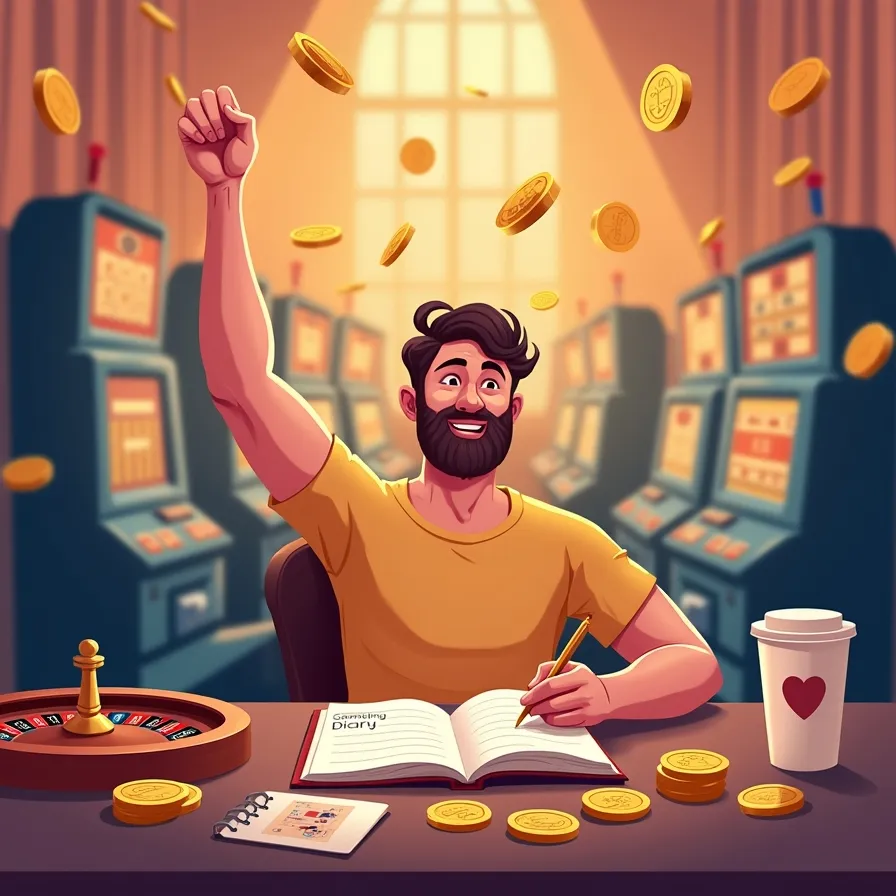Gambling can give you vivid emotions, but sometimes it develops into a serious problem - gambling addiction. Many people ask themselves: is it possible to quit gambling on your own, without expensive rehabilitation? In this article you will find:
- Stories of real people, who overcame addiction.
- Effective techniques, verified by psychologists.
- Adviсe, how to take under control your game and keep calm.
Content
Why do people become addicted to gambling?
Before we get into it, how to quit gambling on your own, it is important to understand the mechanisms of addiction:
- Dopamine release. Each one bid and winning activates the “pleasure center” in the brain, making you strive for new bursts of emotion.
- The illusion of control. Many players believe that they can "guess" the next outcome.
- Social influence. Fellow players, advertising and atmosphere casino increase the desire to participate "because everyone is playing."
- Emotional escape. Betting helps you escape from stress, work or problems in your personal life.
Understanding the reasons is the first step to quit gambling yourself. Below are the stories of those who have walked this path.
1️⃣ Stories of people who overcame addiction
The story of Alexey, 34: from daily bets to a quiet life
"I started out like most people: a couple of bets a week after work. But gradually it turned into a daily ritual. I was losing money, lying to my wife about debts, and one day I realized I needed a break. I sat down with a pen and paper and began to analyze: why am I playing, what am I getting from bets?"
What helped Alexey:
- Diary of "game self-control". Every day he wrote down the bet size, emotions before and after. This helped to identify "triggers" (stress, boredom).
- Habit substitution. Instead of slots, Alexey started running in the mornings - the release of endorphins became noticeably more “healthy”.
- Support from loved ones. He honestly told his wife about the problem and agreed on a “contract”: in case of breakdowns, a financial report and a heart-to-heart talk.
Six months later, Alexey was able to give up betting completely and now runs a blog about healthy habits.
The story of Maria, 27: “The community keeps us afloat”
"After three years of playing online casinos, I felt trapped: debt after debt, thinking only about the next "big" bet. What helped me was... a group in a messenger!"
What helped Maria:
- Anonymous support. A Telegram group with people struggling with addiction, where everyone shared their successes and difficulties.
- The 24-hour break rule. Before placing any bet, Maria waited a day, and if the desire did not go away, she wrote it down in her diary instead of placing any money.
- Installing blockers. Special browser extensions blocked access to gambling sites.
Igor's story, 42 years old: a professional approach
"I am a manager of a large office and am used to solving problems systematically. Therefore, depending on gambling I also came up with a "business face."
What helped Igor:
- SMART goals. He made a plan: “reduce wins/losses by 50 % per month” → “reduce bets to zero in three months”.
- Psychotherapeutic technique "circular dialogue". He talked to himself: as “player-I” and “sober-I”, in order to reveal internal contradictions.
- Awards for achievements. For every week without bets, Igor treated himself to a trip to the cinema or a new book.
2️⃣ What techniques really help?
There are many psychological techniques and programs. We will tell you about the most effective ones:
2.1. Cognitive behavioral therapy (CBT)
- The gist: change your "automatic thoughts" and reactions to triggers.
- Application: keeping a diary, recognizing “thinking traps” (“I have to get even”), gradually changing behavioral patterns.
- Result: 60–70 % people report a decrease in their gambling cravings after a course of 8–12 sessions.
2.2. Methodology "5 steps of self-control"
- Awareness of the problem. Clearly acknowledge that gambling is getting out of control.
- Trigger analysis. Identify situations and emotions that trigger bets.
- Developing alternatives. Make a list of activities that will replace excitement: sports, hobbies, communication.
- The practice of deferment. Introducing the "24 hour rule" - waiting before each bet.
- Evaluation and adjustment. Weekly "report" to yourself or a support group.
2.3. Group therapy and anonymous meetings
- Formats: online chats, Zoom sessions, offline meetings using the 12-step method.
- Advantage: the feeling that you are not alone, sharing experiences and support in “weak moments”.
- Tip: Choose groups with a psychologist moderator.
2.4. Mindfulness techniques
- Practice: short meditations (5-10 minutes) to “cool down” before the urge to place a bet.
- Effect: reducing impulsivity, developing the skill of “observing” thoughts, but without immediate reaction.
2.5. Psychopharmacology (as indicated)
- Antidepressants or anxiolytics are used under the supervision of a physician if there are concomitant depression or increased anxiety.
- Important: Medicines are not a panacea, but only support for a pronounced clinical picture.
3️⃣ Tips for those who want to take control of the game
- Be honest with yourself and your loved ones. Recognizing a problem is the key to starting change.
- Set financial limits. Enjoy bank cards with a low maximum balance or set aside a “game wallet” with a fixed amount.
- Block access. Extensions like Gamban or BetFilter will help you close betting sites on your computer and smartphone.
- Keep a diary. Write down every impulse to place a bet: when, under what circumstances, and with what thoughts.
- Find a hobby. Physical activity, creativity, volunteering - anything that brings joy without financial risk.
- Consult a psychologist. Even 3-4 online sessions can radically change your perspective on a problem.
- Join communities. Anonymous groups, chats and forums provide a sense of support and understanding.
- Set clear goals. Use the SMART technique: Specific, Measurable, Achievable, Relevant and Time-bound.
- Reward yourself. For every day, week or month without bets - small gifts or new experiences.
- Don't be afraid of breakdowns. One failure is not the end of the road. Analyze the reason for the failure and move on.
Conclusion
Yes, quit gambling yourself possible. The main thing is to recognize the problem, choose the right methods and enlist support. The real stories of Alexey, Maria and Igor prove: the path to freedom begins with one simple decision - "I want to change everything."
Take advantage of proven methods: cognitive behavioral therapy, mindfulness, support groups. Follow advice: keep a diary, block access to websites, set SMART goals and praise yourself for every step forward.
You are not alone: thousands of people have already freed themselves from the shackles of gambling addiction and are living full lives. And you could very well be the next successful example.




